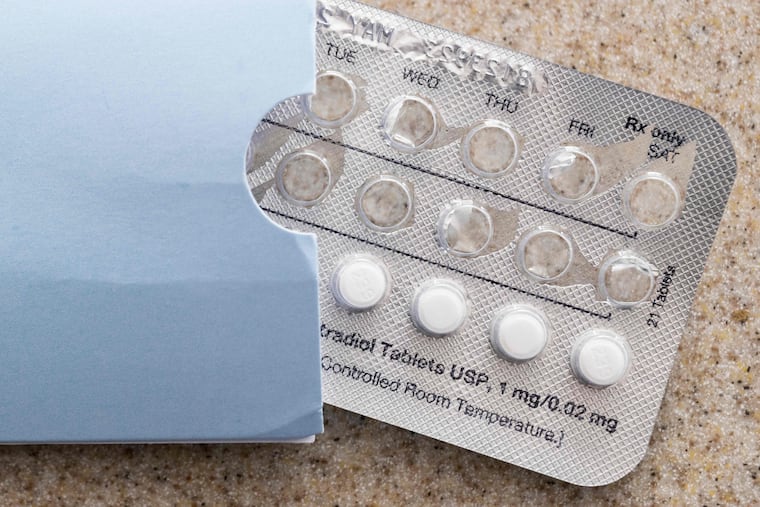Social media is talking to teens about birth control, but do they know what they’re talking about?
Only about half of adolescents receive the amount of recommended sex education. They’re filling in the gaps following social media influencers, who sometimes give disastrous advice.

Parents, if you have a teenager, chances are, they’re on social media right now. In a recent Gallup survey of more than 1,500 U.S. teenagers, more than half reported spending an average of 4.8 hours per day using social media apps. As New York University social psychologist Jonathan Haidt quipped, “We’ve overprotected our children in the real world and under-protected them online.”
Parents, can we talk… about sex? Only about half of adolescents receive the amount of sex education recommended by by the federal Healthy People 2030 initiative. It’s no surprise that they’re filling in the gaps following social media influencers, who often target teens and sometimes give disastrous advice.
Take 17-year-old Anna, for example. She told her primary care provider that she had recently become sexually active, and although she didn’t want to get pregnant, she saw a post on social media about birth control that scared her out of using it. A few minutes after this conversation, her pregnancy test was positive.
Parents, even if your teen is not sexually active, you should make sure they’re getting accurate information about birth control. It’s important for them to understand a few things:
-Birth control methods offered to teenagers are reversible, do not affect future fertility, and usually cause no side effects. Most birth control methods contain the hormones progesterone and/or estrogen that are similar to the hormone made naturally by a female’s ovaries.
-Long-acting reversible contraceptives (LARCs) are more than 99% effective at preventing pregnancy, and we frequently recommend them. There are 2 types of LARCs, the intrauterine device (IUD) that is inserted in the uterus and can remain up to 8 years; and an implant that is inserted under the skin of the upper arm and can remain for up to 4 years. IUDs can contain hormones, or are made of copper; implants contain hormones.
-The medroxyprogesterone (“Depo”) injection is the next most effective option, preventing pregnancy 97% of the time. A medical provider injects Depo into the arm or buttock every 3 months.
-The birth control pill, the birth control patch, and the vaginal ring are 92% effective at preventing pregnancy when used consistently. They differ in that the pill is taken by mouth daily, the patch is a sticker that is applied to the skin weekly, and the vaginal ring is inserted (like a tampon) into the vagina monthly.
-The male condom covers the penis and is 85% effective at preventing pregnancy when used consistently. The female condom (internal condom) is inserted into the vagina with one end outside the vagina and is 79% effective at preventing pregnancy. Condoms also help protect against sexually transmitted infections (STIs). Dual methods; that is, using condoms together with a highly effective form of birth control, is recommended to prevent both pregnancy and STIs.
-If no condom was used or if the condom broke, an over-the-counter emergency contraceptive pill (ECP) can be taken up to 3 days following intercourse, or a prescription ECP can be taken up to 5 days following intercourse.
Teenagers should talk to their PCPs before starting birth control. People with a history of blood clots in their legs or lungs or people who have migraines with aura should not use methods that contain estrogen.
Now that we’ve stated the facts let’s look at how social media has been talking about birth control:
Does birth control cause depression?
No. Studies have shown that birth control has minimal effect on mood. Like any medication, however, birth control can affect every patient differently.
Does birth control cause weight gain?
Not usually. Females are expected to gain weight during puberty, whether they are on birth control or not. Studies have shown that the birth control pill, the birth control patch, and the vaginal ring do not result in weight gain or loss. In some females, Depo injections may increase appetite resulting in weight gain of a few pounds per year. Females who are already overweight are more likely to gain weight on Depo.
Does birth control cause infertility?
No. Birth control does not cause lasting infertility. Once an individual stops birth control, menstrual periods usually return within 3 months. Studies show that the pregnancy rate after stopping birth control is the same as the rate for those who have never been on birth control.
Our advice:
Never let your children get their birth control information solely from social media. Make sure to use reputable sources of online information, such as the Nemours site: kidshealth.org, or Boston Children’s Hospital’s youngwomenshealth.org. Parents, you’ve got this!
Courtney Kaye is a pediatric resident and Rima Himelstein is an adolescent medicine specialist at Nemours’ Children’s Health in Delaware.